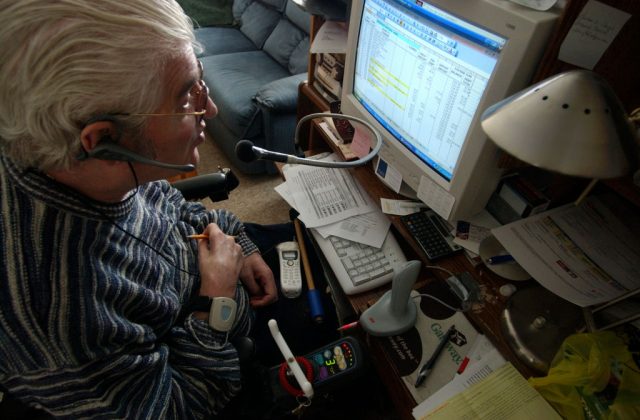
Earlier today, Microsoft announced its plans to purchase Nuance for $56 per share—23 percent above Nuance's closing price last Friday. The deal adds up to a $16 billion cash outlay and a total valuation for Nuance of about $19.7 billion, including that company's assumed debt.
Who is Nuance?

Nuance is a well-known player in the field of natural language recognition. The company's technology is the core of Apple's Siri personal assistant. Nuance also sells well-known personal speech-recognition software Dragon NaturallySpeaking, which is invaluable to many people with a wide range of physical disabilities.
Dragon NaturallySpeaking, originally released in 1997, was one of the first commercially available continuous dictation products—meaning software that did not require the user to pause briefly between words. In 2000, Dragon Systems was acquired by ScanSoft, which acquired Nuance Communications in 2005 and rebranded itself as Nuance.
Earlier versions of Dragon software used hidden Markov models to puzzle out the meaning of human speech, but this method had serious limitations compared to modern AI algorithms. In 2009, Stanford researcher Fei-Fei Li created ImageNet—a massive training data set that spawned a boom in deep-learning algorithms used for modern, core AI tech.
After Microsoft researchers Dong Yu and Frank Seide successfully applied deep-learning techniques to real-time automatic speech recognition in 2010, Dragon—now Nuance—applied the same techniques to its own speech-recognition software.
Fast forward to today, and according to both Microsoft and Nuance, medically targeted versions of Dragon are in use by 77 percent of hospitals, 75 percent of radiologists, and 55 percent of physicians in the United States.
Microsoft’s acquisition play
Microsoft and Nuance began a partnership in 2019 to deliver ambient clinical intelligence (ACI) technologies to health care providers. ACI technology is intended to reduce physician burnout and increase efficiency by offloading administrative tasks onto computers. (A 2017 study published in the Annals of Family Medicine documented physicians typically spending two hours of record-keeping for every single hour of actual patient care.)
Acquiring Nuance gives Microsoft direct access to the company's entire health care customer list. It also gives Microsoft the opportunity to push Nuance technology—currently, mostly used in the US—to Microsoft's own large international market. Nuance chief executive Mark Benjamin—who will continue to run Nuance as a Microsoft division after the acquisition—describes it as an opportunity to "superscale how we change an industry."
The move doubles Microsoft's total addressable market in the health care vertical to nearly $500 billion. It also marries what Microsoft CEO Satya Nadella describes as "the AI layer at the healthcare point of delivery" with Microsoft's own massive cloud infrastructure, including Azure, Teams, and Dynamics 365.
The acquisition has been unanimously approved by the boards of directors of both Nuance and Microsoft and it is expected to close by the end of 2021.
Article From & Read More ( Microsoft acquires Nuance—makers of Dragon speech rec—for $16 billion - Ars Technica )https://ift.tt/3daCKMp
Business
Bagikan Berita Ini














0 Response to "Microsoft acquires Nuance—makers of Dragon speech rec—for $16 billion - Ars Technica"
Post a Comment